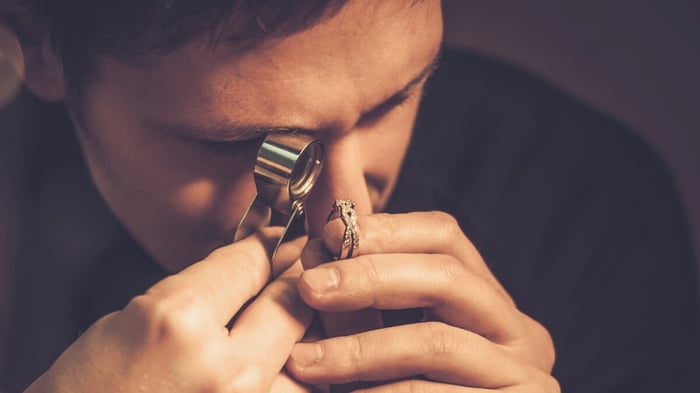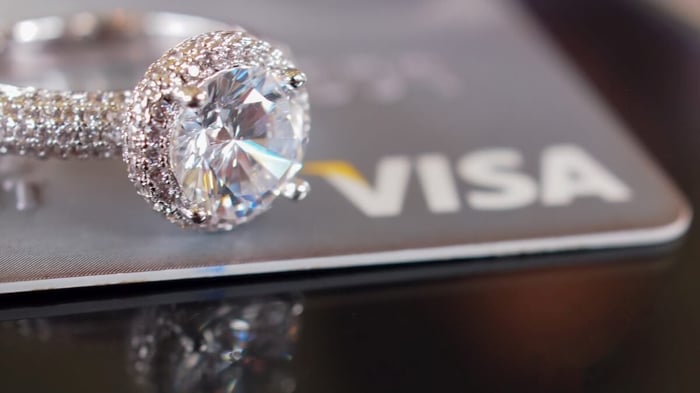How To Choose And Use A Jeweller's Loupe To Check Gemstones And Their Settings
Many people have their own jeweller's loupe and enjoy using it to examine their jewellery. Regrettably, not everyone learns how to use a loupe to best use these fascinating yet straightforward devices.
When you have a loupe and can use it correctly, you don't need to rush to the jeweller every time you hit your ring on anything hard. Using a loupe properly may help you analyse your jewellery to identify imperfections, cracks, chips, or damage to your jewellery's settings without requiring you to visit a professional jeweller.
I would like to discuss some of the qualities of loupes before we look at how to use one so that you can choose a quality magnifier for your own personal use.
Choosing Your First Jeweller's Loupe
Selecting the correct type of loupe is just as important as utilising it correctly. When looking into getting a loupe for yourself, there are a few different aspects that you ought to think about.
How Big Should You Go?
The loupe's magnification should be the first thing that you look at. There are loupes available with magnification ranging from 2x to 30x and even higher in some cases. Since 10x is the magnification utilised by the gem grading labs when evaluating diamonds, it will serve our goals most effectively to use a 10x loupe.
The magnifying power of 10x indicates that objects viewed via the loupe will appear to be 10 times larger than their true dimensions. It's possible that a lower magnification level won't display enough detail, while a higher magnification level could offer you an unrealistic perspective of your jewellery.
How Many Lenses Do You Need?
The number of lenses a loupe possesses is the next item to consider when purchasing one. Most loupes sold at low prices only come with a single lens. These are fine for usage in a casual setting, but they may cause difficulty with focus and clarity. The phenomenon known as chromatic aberration, in which objects in the viewer's field of view can appear to have a colour fringe or rainbow at the edges, is probably much more problematic. These aberrations can also make it harder to see minor defects in a gemstone. When examining things like diamonds that already have a rainbow effect to their sparkle, chromatic aberration is something to avoid.
A triplet loupe contains three lenses that work together to correct the magnification so that the view you see is as clear as possible. These lenses also work to assist correct any colour abnormalities that may be caused by chromatic aberration or reflected light. abnormalities that may be caused by chromatic aberration or reflected light.
Keep It Black!
Finally, your loupe should also have a black body and interior for the best results. The black colour of the body that holds the lenses helps to cut down on reflections and does not introduce any outside colour from the item under examination. The black also reduces reflection from external light sources used to illuminate the jewellery under examination.
All the info about black loupes is valid and worth noting, but many people prefer to use a silver, brass or gold-coloured model because they look nicer – and who are we to argue? I prefer a nice brass or gold version for the looks and compromise on the ultimate performance.
Light Up The Scene
Some loupes are sold with LED illumination. This does not add much to the cost but makes it easy to look at your jewellery under consistent light without setting up some form of external illumination.
Princess Diamond Stud Earrings 2.00ct G/SI Quality in 18k White Gold

£9,887.00
£18,717.00
These gorgeous diamond earrings in 18k white gold feature a pair of princess cut diamonds with a four-prong corner setting to display and protect the diamonds that, in total, weigh 2.00CT. The natural diamonds are certified as G/SI quality and… read more
Using A Loupe
1) Although using a loupe is a basic skill to pick up, mastering it may take some time. Opening your loupe and placing it in front of your eye should be your initial step. I prefer to keep mine within about three centimetres of my face. To assist you in keeping the loupe steady and comfortable, place a finger or the back of your palm on your face.
2) Most people make the biggest mistake of not resting the loupe against something to steady their field of view and moving the loupe around. Both mistakes make it difficult to get a consistent and focused view.
3) Your loupe can be used either way round. It makes no difference to the image that you will see.
4) You will find using the loupe with your dominant eye easier. You can use either eye, but you will, in any case, almost certainly find that over time you gravitate toward the dominant eye. If you are unsure which eye is the dominant (strongest), you can do a quick test. Extend your thumb at arm's length. Then open and close each eye in turn. Your dominant eye is the one where your thumb does not appear to shift position when compared to viewing with both eyes open.
5) The item we wish to observe is now in our field of view. You must place the ring or diamond within three to five centimetres of the lens when using a 10x loupe. Simply move the gemstone you are looking at to bring it into view and focus on what you want to see rather than moving the loupe. You will have a very steady and jitter-free view of your jewellery if you can brace the hand holding the jewellery against the hand holding the loupe.
That's it. It really is that simple.
Mens Signet Ring with 0.10ct Diamonds in G/SI Quality 9k Yellow Gold

£667.00
£697.00
The perfect size and shape, this signet ring is a modern statement piece. The ring is made of 9k yellow gold and features a striking row of diamonds running across the 11.5 x 12.5mm head. The G/SI grade diamonds weigh… read more
Buying Your First Loupe
Many loupes are available, but the range from FJDTool.com is comprehensive and looks excellent value; however, they are based in the United States.
If you are based in the UK, Amazon has a wide range of loupes. Here is a link to their offers for 10x loupes.
Now, when you choose your next piece of jewellery from All Diamond, you will be able to check it over and see the beauty of the diamonds and other gemstones in all their close-up glory! Our jewellery is well worth a close examination!




